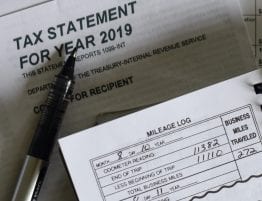
Taxes are complicated when it comes to Native American tribes and their members because of the complexities in the Indian law and the federal tax law. The treaties between the tribes and the U.S., some of which go back centuries, add to the confusion. If you are a Native American tribe or tribe member, it is important to understand your unique tax situation so that you stay compliant with the country’s tax laws.
Why are Taxes Complicated for Native American Tribes
Though the IRS makes it seem simple by saying that “Federally recognized Indian tribal governments aren’t subject to federal income tax but they must pay employment tax on wages paid to employees.” whereas “Members of a federally recognized Indian tribe are subject to federal income and employment tax and the provisions of the Internal Revenue Code (IRC), like other United States citizens,” they also mention in the very next line that “Determinations on taxability must be based on a review of the IRC, treaties and case law.”
This is what makes taxes complicated for Native Americans. The question is not solely whether they are filing as an individual member of the tribe or the tribe itself as a sovereign entity; but what the tax code, specific treaty/agreement, and the case law (what the law/courts established in similar former cases) specifies about their particular case. In other words, it depends upon a variety of factors if you pay and what you pay.
Tribe Members and Tribes are Different for Tax Purposes
How you pay taxes is different if you are a Native American tribe member than if you a tribe. Largely, a member of a tribe pays federal income tax and self-employment tax the same way as a U.S. citizen does. If you are working for an employer, you use Form W-2 to report your wages to the IRS; if self-employed, you report your earnings or losses on Schedule C. However, you may enjoy certain exemptions.
A federally recognized tribe is considered a sovereign entity by the federal law, giving it the status of a state. Therefore, a tribe has all the rights and responsibilities of a state. An Indian tribe is not subject to income tax, as per Revenue Ruling 67-284, but any income that is not exempt needs to be paid taxes on.
Unless a treaty specifically states an exemption, the income distributions to tribe members are also subject to federal income tax. The type of income not taxed includes payments made under qualifying general welfare programs and payments exempt under the Per Capita Act.
Tax Obligations and Exemptions
Native Americans are U.S. citizens and are taxed in the same way. A business run by an Indian American needs to withhold taxes the same as any business. However, Native American tribes have treaties and agreements with the United States, which may contain exemptions.
Treaties between Native American tribes and the United States may carry exclusions of certain amounts from gross income for federal income tax and employment tax. There may also be some acts of Congress that allow for certain exclusions. Also, treaties may contain special tax treatment on certain types of activities such as fishing.
Both tribes and tribal members need to consider their exemptions separately. For example, for individual tribe members, there is an exception for income earned from individually allotted land that remains in trust. So, if a tribe member earns income from the sale of crop from that land or sale of livestock raised on that land, that income is ruled exempt. However, before claiming the exemption, taxpayers may review the specific rules regarding what type of land and which income-generating activities on that land qualify for the exemption.
Conclusion
Due to complicated tax rules, Native Americans often find it difficult to correctly ascertain their tax liability. They may review the treaty their tribe has with the U.S., study the specific tax rules regarding their income-generating activity, or consult with a tax professional to fully understand their tax obligations. If the IRS spots any errors or non-compliance, they contact tribal governments or entities, or may ask the office of Indian Tribal Governments (ITG) to conduct an examination.








